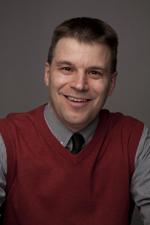 Mike Stebleton, associate professor in the Department of Postsecondary Teaching and Learning, presented the scholarly paper titled: “Facilitating Belonging: Immigrant Students and the Impact of Faculty and Institutional Agents on Sense of Belonging” at the annual conference of NASPA (Student Affairs Administrators in Higher Education) in New Orleans, LA, March 21-25, 2015. Stebleton discussed the ongoing, qualitative research project of 103 immigrant college students across three campuses. The presentation also explored the role and impact of faculty member and student affairs educator interactions on students’ sense of belonging at 4-year institutions.
Mike Stebleton, associate professor in the Department of Postsecondary Teaching and Learning, presented the scholarly paper titled: “Facilitating Belonging: Immigrant Students and the Impact of Faculty and Institutional Agents on Sense of Belonging” at the annual conference of NASPA (Student Affairs Administrators in Higher Education) in New Orleans, LA, March 21-25, 2015. Stebleton discussed the ongoing, qualitative research project of 103 immigrant college students across three campuses. The presentation also explored the role and impact of faculty member and student affairs educator interactions on students’ sense of belonging at 4-year institutions.
Mitchell delivers keynote on long-term impacts of community engagement
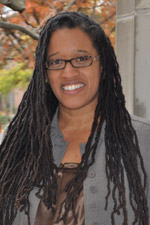 Tania D. Mitchell, assistant professor in the Department of Postsecondary Teaching and Learning, delivered the closing keynote address at the Gulf-South Summit March 12, 2015, in Little Rock, Arkansas. The conference, hosted this year by the University of Arkansas and the Clinton School for Public Service, gathers faculty and administrators to share research and best practices on community engagement and service learning. Mitchell’s keynote, titled: “Living Lives of Commitment: The Enduring Influence of Community Engagement Experiences,” used empirical research to demonstrate the long-term impacts of community engagement opportunities on the lives of college alumni.
Tania D. Mitchell, assistant professor in the Department of Postsecondary Teaching and Learning, delivered the closing keynote address at the Gulf-South Summit March 12, 2015, in Little Rock, Arkansas. The conference, hosted this year by the University of Arkansas and the Clinton School for Public Service, gathers faculty and administrators to share research and best practices on community engagement and service learning. Mitchell’s keynote, titled: “Living Lives of Commitment: The Enduring Influence of Community Engagement Experiences,” used empirical research to demonstrate the long-term impacts of community engagement opportunities on the lives of college alumni.
Jill Trites: A life of international teaching, learning and service.
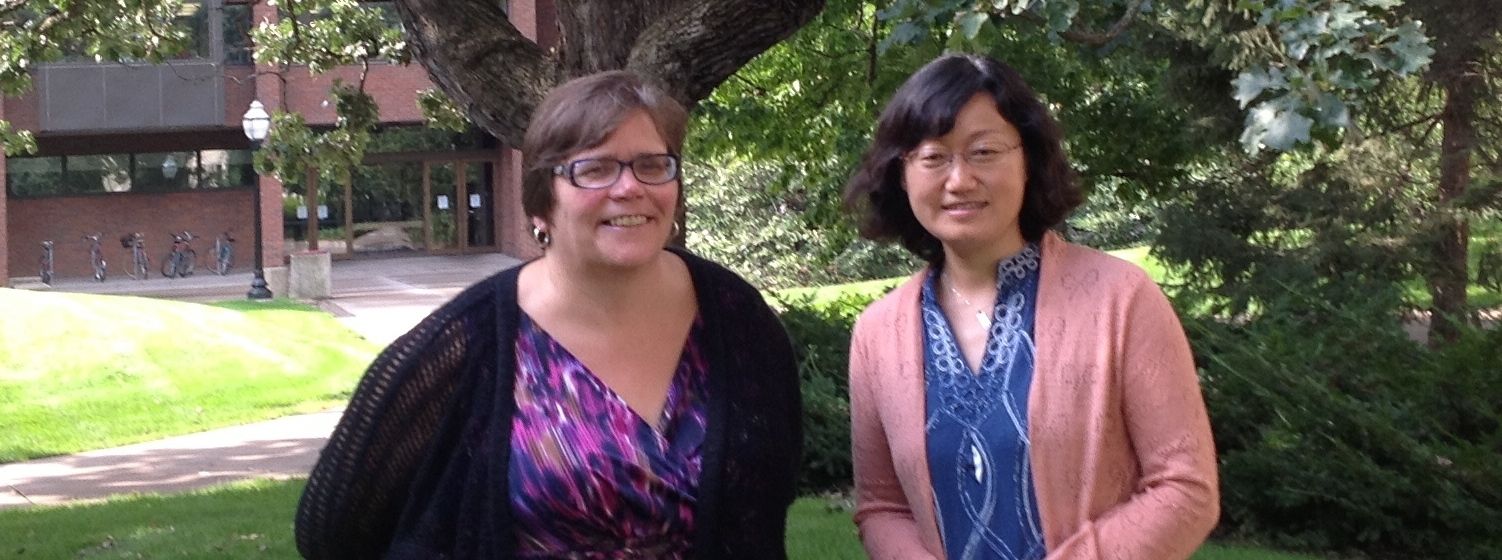
When student protests erupted in Tiananmen Square, Jill Trites was only 146 kilometers away in Tianjin. While the People’s Republic of China may seem an unlikely location to find a young woman from Pelican Rapids, Minnesota, Trites’ life is richly woven with unique international teaching, learning and service work experiences.
As a town kid raised in a farming and resort community, Trites, now a senior teaching specialist in the Department of Postsecondary Teaching and Learning, embraced the rhythm of new faces and population swell that arrived each summer. “I met people who encouraged me to try new things,” recalls Trites. The fourth of five children, Trites followed in her siblings’ footsteps, complying with her parents’ desire that she attend a local, state college. At Minnesota State University, Moorhead, Trites made friends who broadened her already open mind. “One friend from Hong Kong challenged me to learn Chinese, so I did,” she says. Studying the Chinese language, led to a study abroad scholarship. After one semester in the People’s Republic of China, Trites elected to stay for a second. It was the spring of 1989, and the student protests for democracy had just begun. “The open broadcasting from Tiananmen Square was a great turning point,” says Trites.
The study abroad semesters were a springboard for Trites. In addition to earning a Bachelor of Science in chemistry, Chinese and communications from Moorhead, and a Master of Arts in teaching English as a second language from the University of Minnesota, Trites holds a Certificate in Chinese language and linguistics from Nankai University, Tianjin in the People’s Republic of China. Her international work includes teaching English at Nankai University and Tianjin University in the People’s Republic of China and cultural orientation courses for the International Organization for Migration (IOM) in Nairobi, Kenya. During the summers of 2008-2012, she traveled to Mozambique, in southeast Africa, to volunteer as an English teacher to elementary, middle school, and high school students, and facilitate teacher-training sessions for early childhood educators and primary school teachers.
The University of Minnesota acknowledged Trites’ dedication to international education by selecting her for the 2014-2015 Internationalizing Teaching and Learning (ITL) Cohort and ITL Fellows programs. “I’ve been working with international students one way or another since 1990,” says Trites. But after meeting with her multidisciplinary cohort in January 2015, Trites displayed the humility of a person committed to lifelong learning. “I realize how far I have to go in developing activities that help build awareness for problem-solving and decision-making as part of a global community.”
Trites was also selected to participate in the University’s Collaborative Online International Learning (COIL) Cohort program. For someone who values being on the cutting edge of international education, Trites sees COIL as an exciting, new challenge: one that may give her students a chance to connect with Chinese peers in a way that was impossible in 1989. To develop her COIL course, Trites plans to partner with Joy Song, a professor of English Education from Qingdao University, who was a visiting scholar at the University last year. The ambitious undertaking involves more than developing curriculum, together Trites and Song must navigate disparate technologies, cultural norms, student expectations as well as a twelve-hour time difference. “We’ll have to be open, flexible and adapt as we go,” says Trites. Despite the extensive coordination, Trites believes a COIL course can yield tremendous benefits. “Only fifty percent of students have access to a learning abroad program. For some students, this is the only international learning opportunity they may ever have,” says Trites. “It might be rough at times, but we have to try.”
To help gather information and connections that support her COIL course development, Trites will attend the SUNY COIL Center’s 7th annual conference March 19 – 20, 2015. As the leading international event in the field, the COIL conference brings together 250+ faculty, international programs staff, instructional technology staff, and university and college administrators from SUNY, across the U.S. and around the world to celebrate innovative models and best practices.
Doctoral student earns prestigious military leadership award
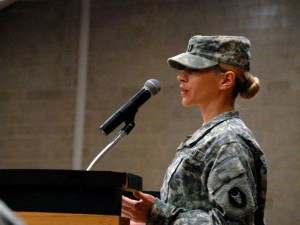 For her dedication to the principles of duty, honor, and country, Ph.D. student Amber Manke is 1 of 28 Army officers nationwide who will receive the prestigious 2014 General Douglas MacArthur Leadership Award. Manke, a captain in the Minnesota Army National Guard and doctoral candidate in the Department of Organizational Leadership, Policy, and Development, will accept the award at the end of May in Washington, D.C.
For her dedication to the principles of duty, honor, and country, Ph.D. student Amber Manke is 1 of 28 Army officers nationwide who will receive the prestigious 2014 General Douglas MacArthur Leadership Award. Manke, a captain in the Minnesota Army National Guard and doctoral candidate in the Department of Organizational Leadership, Policy, and Development, will accept the award at the end of May in Washington, D.C.
The MacArthur Award recognizes company grade officers from the active Army, National Guard, and Army Reserve. Recipients embody leadership qualities demonstrated by General MacArthur, a U.S. five-star general during World War II, and exhibit exceptional ability to ensure that soldiers are trained, ready, and meeting the highest standards necessary for United States’ global missions.
“Captain Manke understands duty, lives honor, and is dedicated to country,” Division Headquarters Battalion Commander Lt. Col. Carl Fassbender wrote in Manke’s nomination letter. “She works to ensure all soldiers understand the responsibility that service to country includes, and she holds them accountable.”
Manke, whose educational focus is on the evaluation of leadership development programs, has earned previous awards for her military and community contributions. She was recognized in 2014 by the Minnesota Humanities Center with the Veteran’s Voice Award and was named a Tillman Military Scholar in 2012.
Throughout her military career and education, Manke has balanced many volunteer positions. She is a coach for Girls on the Run, speaks to youth in schools, and is involved the Salvation Army, Feed My Starving Children, and the Make-A-Wish Foundation.
Since its inception in 1987, only eight other Minnesota Army National Guardsmen have earned the General Douglas MacArthur Leadership award. Six of the 28 officers chosen each year are from the Army National Guard.
Upcoming Events and What are WE reading?
CEHD:
Colloquium: Outrage, Ambivalence, And Desire As Forms Of Knowledge: Critical Participatory Action Research With Black Youth By Dr. Lozenski
Wednesday, March 11, 2015
12:00 PM – 1:00 PM
278 McNeal Hall
The Other Side Of Domestic Violence: A Community Discussion
Friday, March 13, 2015
3:30 PM – 5:00 PM
Harriet Tubman Center – West
CEHD Research Day
Tuesday, March 24, 2015
11:00 AM – 1:00 PM
McNamara Alumni Center
UNIVERSITY:
OED Certificate Workshop 6: Educating about Equity & Diversity: Facilitating Challenging Conversations
Date: 03/10/2015
Time: 8:30 AM – 11:30 AM
Location: Cherrywood Room (275) St. Paul Student Center
Jewish Life in Germany Today
Date: 03/10/2015
Time: 11:00 AM – 7:00 PM
Location: Quarter Gallery Regis Center for Art (East)
Spelling Indigenous: Orthographies and Sovereignty in Native America
Date: 03/10/2015
Time: 12:00 PM – 1:15 PM
For location, e-mail: premod@umn.edu
Exploring Terrorvictimity: Challenge and Response
Date: 03/10/2015
Time: 12:15 PM – 1:15 PM
Location: 65 Mondale Hall
OED Certificate Workshop 5: Engaging Universal Design Concepts to Increase Access and Inclusion
Date: 03/11/2015
Time: 1:00 PM – 4:00 PM
Location: Cherrywood Room (275) St. Paul Student Center
Incorporating Equity & Diversity into the Job Performance
Date: 03/11/2015
Time: 9:30 AM – 11:30 AM
Location: 665 McNamara Alumni Center
Community:
We are Hmong Minnesota
March 7th-November 29th 2015
Minnesota History Center
$11 Adults/ $9 seniors and college students w/ID/ $9 active military w/ID/ $6 children ages 6-17 (Free under age 5)/ Free Tuesdays 5 – 8 p.m./ Members Free
Emancipation & Its Legacies
February 09, 2015-March 09, 2015
Landmark Center Main Gallery
Modern Spirit: The Art of George Morrison
February 14, 2015-April 26, 2015
Minnesota History Center
$11 Adults/ $9 seniors and college students w/ID/ $9 active military w/ID/ $6 children ages 6-17 (Free under age 5)/ Free Tuesdays 5 – 8 p.m./ Members Free
“Do not read, as children do, to amuse yourself, or like the ambitious, for the purpose of instruction. No, read in order to live.” Gustave Flaubert.
To better understand the lives that live within our college, we are asking CEHD staff and faculty to tell us what they are reading in the areas of equity and diversity. Below is a list of some diversity and equity readings.
The reading of Jill Stiber:
Culturally Alert Counseling by Garrett McAuliffe and associates.
A guide to teach counselors how to recognize, respect and integrate the diversity of narratives present today as they guide clients through uncertainty and pain.
The reading of Gifty Amarteifio
Invisible Man by Ralph Ellison
The reflections and journey of a nameless narrator who society refuses to “see” and his struggle to be human and Negro in America.
CEHD faculty win U of M’s most prestigious teaching awards
Two CEHD faculty have won the highest honors that the University confers on faculty for teaching. Rashné Jehangir, from the Department of Postsecondary Teaching and Learning, was selected for the Horace T. Morse Award for Outstanding Contributions to Undergraduate Education, and Diane Tedick, from the Department of Curriculum and Instruction, was honored with the Award for Outstanding Contributions to Postbaccalaureate, Graduate, and Professional Education. They will receive their awards at a ceremony on April 8.
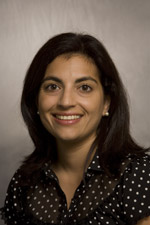 Jehangir has dedicated her career to improving the academic programs and classroom experiences of undergraduates in the University and across the country through her educational leadership, exemplary teaching, and research. Her emphasis on first generation and bypassed student populations, the most difficult to retain, is exemplary work that has made a measurable difference in retention.
Jehangir has dedicated her career to improving the academic programs and classroom experiences of undergraduates in the University and across the country through her educational leadership, exemplary teaching, and research. Her emphasis on first generation and bypassed student populations, the most difficult to retain, is exemplary work that has made a measurable difference in retention.
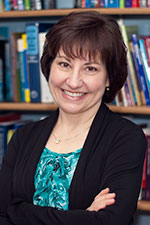 Tedick is the teacher, adviser, and mentor every student deserves. She is passionate about teaching and learning, and about providing students with many opportunities to learn and grow as scholars and professionals. She gives unselfishly and generously of her time and expertise to support and care for students throughout their careers. She has also been extraordinarily innovative in designing courses and programs that foster collaborative relationships and learning communities nationally and internationally.
Tedick is the teacher, adviser, and mentor every student deserves. She is passionate about teaching and learning, and about providing students with many opportunities to learn and grow as scholars and professionals. She gives unselfishly and generously of her time and expertise to support and care for students throughout their careers. She has also been extraordinarily innovative in designing courses and programs that foster collaborative relationships and learning communities nationally and internationally.
Jehangir receives Morse Award for undergraduate education, discusses work in NASPA interview
 Rashné Jehangir, associate professor in the Department of Postsecondary Teaching and Learning, has been awarded the Horace T. Morse – University of Minnesota Alumni Association Award for Outstanding Contributions to Undergraduate Education. Jehangir has dedicated her career to improving the academic programs and classroom experiences of undergraduates in the university and across the country through her educational leadership, exemplary teaching, and research. Her emphasis on first generation and bypassed student populations, the most difficult to retain, is exemplary work that has made a measurable difference in retention. She will be honored at the Distinguished Teaching Awards Ceremony on campus April 8.
Rashné Jehangir, associate professor in the Department of Postsecondary Teaching and Learning, has been awarded the Horace T. Morse – University of Minnesota Alumni Association Award for Outstanding Contributions to Undergraduate Education. Jehangir has dedicated her career to improving the academic programs and classroom experiences of undergraduates in the university and across the country through her educational leadership, exemplary teaching, and research. Her emphasis on first generation and bypassed student populations, the most difficult to retain, is exemplary work that has made a measurable difference in retention. She will be honored at the Distinguished Teaching Awards Ceremony on campus April 8.
In a recent interview by the National Association of Student Personnel Administrators (NASPA), Jehangir’s work is highlighted as part of a series featuring the work on social class scholars. The Socioeconomic and Class Issues in Higher Education Knowledge Community within NAPSA is sponsoring this year long series to showcase scholars whose work informs how SES and issues of class impact and alter the college and university landscape. Access Jehangir’s interview here.
A multicultural navigator seeks to empower others.
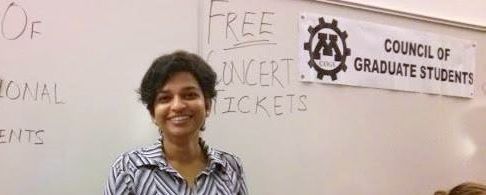
Navigating new environments is a skill Sumitra Ramachandran mastered as a young girl in India. The daughter of an army officer, her family moved frequently within the country, fortifying Ramachandran’s ability to adapt to and embrace change. These early experiences embedded a curiosity and resourcefulness that’s reflected in her professional journey of discovery, her support of other international students and her current academic pursuit.
After earning a Bachelor of Arts in English Literature and a Postgraduate Diploma in Journalism, Ramachandran began working as a picture researcher for a stock photography company in India. The position involved fulfilling digital imaging requests for clients around the world and required sensitivity to the cultural context of the images. She was intrigued with identifying and understanding the subtle, visual differences among cultures, excelling at the challenge and working her way up to team leader. “But, there was no further growth so I decided to explore freelance writing,” she recalls.
As a freelance writer and editor, she began creating advertising and marketing copy for print ads and websites. She secured a role as an advertising agency creative director while her freelance assignments grew. She began consulting with technology companies, serving as a voice artist for Apple apps, developing scripts for story apps, and writing technical documentation for gaming sector clients. This work sparked another transition point in Ramachandran’s career path. “Technical writing seemed more ethical to me,” she says. “It’s much easier on the conscience.”
Interested in pursuing technical writing further, Ramachandran sought formal training but couldn’t find a program in India at the time. Then, while visiting family in Minnesota, Ramachandran learned about the Technical Writing and Communication Certificate in the Department of Writing Studies at the University of Minnesota. She initially enrolled in the certificate program, but transferred to the MS program in the spring.
As a new student in a new country, Ramachandran’s open, outgoing nature led her to pursue numerous student activities including the Council of Graduate Students (COGS), where she served a term as the Executive Vice President. Ramachandran is also the founder of CIGS, the Council of International Graduate Students, a student-created group that helps acclimate international graduate students to the University while providing representation and advocacy for issues international graduate students face as a whole.
Through Ramachandran’s involvement with COGS and CIGS, she recognized a gap in connecting students to the resources within large institutions, and a need for nurturing students’ multicultural skills to increase academic success and support efforts in the professional world. “The ability to work within multicultural groups is a huge asset to students when applying for jobs,” Ramachandran says.
With this awareness, when a friend suggested the MA in Multicultural College Teaching and Learning in the Department of Postsecondary Teaching and Learning, Ramachandran knew it was her next step. “I realized their impact and that I could be a part of it,” she says.
From firsthand experiences, Ramachandran knows education changes things: opening up new possibilities and opportunities. And, she believes: “Communication is the gateway to educational access.” Upon graduation in Spring 2016, Ramachandran will be well positioned to negotiate differences in learning and institutional barriers in support of international and first-generation college students. By combining her experiences, expertise and education, students will benefit from Ramachandran’s navigational aptitude as they chart their own academic and professional paths.
African American Read-In benefits from University partnerships, CEHD alum support.
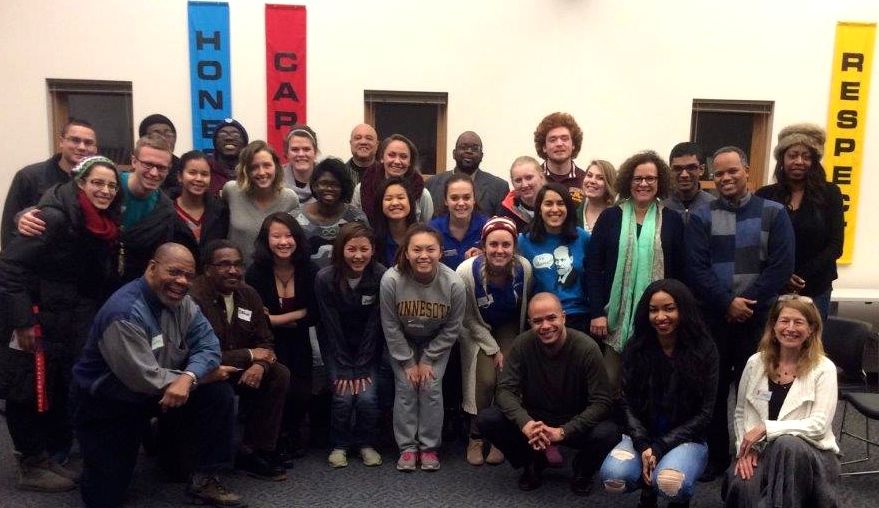 Black Men and Women Reading partnered with Patti Neiman, Director of Educational Efficacy and Leadership at the UYMCA, to hold an African American Read-In. Neiman is the former Associate Director of CEHD career services and a CEHD alum. Participants from Black Men and Women Reading included Ezra Hyland, teaching specialist in the Department of Postsecondary Teaching and Learning, John Carter, who worked in the General College Help Center after returning from Vietnam, Anise McDowell, a graduate of the PSTL MA Program, and McDowell’s sister Denis Mazone. Singing were Kiana Marie and Proper-T.
Black Men and Women Reading partnered with Patti Neiman, Director of Educational Efficacy and Leadership at the UYMCA, to hold an African American Read-In. Neiman is the former Associate Director of CEHD career services and a CEHD alum. Participants from Black Men and Women Reading included Ezra Hyland, teaching specialist in the Department of Postsecondary Teaching and Learning, John Carter, who worked in the General College Help Center after returning from Vietnam, Anise McDowell, a graduate of the PSTL MA Program, and McDowell’s sister Denis Mazone. Singing were Kiana Marie and Proper-T.
Open Textbook Library gains national attention as effort to reduce student costs
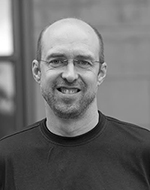 The U of M’s Open Textbook Library, created by the College of Education and Human Development, is getting attention across the country as a tool to help instructors find affordable, high-quality, and openly licensed textbooks. A recent New York Times article, “Putting a Dent in College Costs With Open-Source Textbooks,” notes that “college students could save an average of $128 a course if traditional textbooks were replaced with free or low-cost ‘open-source’ electronic versions.”
The U of M’s Open Textbook Library, created by the College of Education and Human Development, is getting attention across the country as a tool to help instructors find affordable, high-quality, and openly licensed textbooks. A recent New York Times article, “Putting a Dent in College Costs With Open-Source Textbooks,” notes that “college students could save an average of $128 a course if traditional textbooks were replaced with free or low-cost ‘open-source’ electronic versions.”
In the article, David Ernst, chief information officer in the college and lead creator of the Open Textbook Library, said that “professors, busy with teaching and research responsibilities, often don’t know that quality open-source textbooks are available.” He travels nationwide giving presentations about the burden of textbook costs on students, emphasizing that faculty are the ones who decide which textbooks to use in their courses. He said that many professors are now adapting open textbooks to meet their needs and to benefit students.
Read more in a blog post by Ernst or see other stories on open textbook adoption.
Hsu and Heller awarded Center for Educational Innovation grant
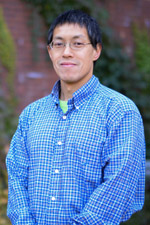 Leon Hsu, associate professor in the Department of Postsecondary Teaching and Learning, and Kenneth Heller, professor in the School of Physics and Astronomy have received an Experiments in Learning Innovation Grant from the University’s Center for Educational Innovation. The grant will support the construction and assessment of computer coaches designed to help introductory physics students develop good problem-solving skills by providing them with coaching while they solve problems. A key feature of the coaches is their ability to be customized by individual instructors without any specialized programming knowledge to suit their own preferences.
Leon Hsu, associate professor in the Department of Postsecondary Teaching and Learning, and Kenneth Heller, professor in the School of Physics and Astronomy have received an Experiments in Learning Innovation Grant from the University’s Center for Educational Innovation. The grant will support the construction and assessment of computer coaches designed to help introductory physics students develop good problem-solving skills by providing them with coaching while they solve problems. A key feature of the coaches is their ability to be customized by individual instructors without any specialized programming knowledge to suit their own preferences.
Poch awarded Center for Educational Innovation grant
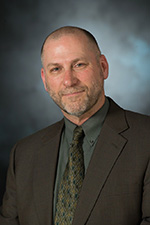 Robert K. Poch, senior fellow and director of graduate studies in the Department of Postsecondary Teaching and Learning, has received an Experiments in Learning Innovation Grant from the University’s Center for Educational Innovation. The grant supports his focus on how one disciplinary area within the humanities (history) can, within a large freshman survey course, be redesigned to take an active problem-based approach that produces applied skills and knowledge entirely relevant to today’s grand challenges.
Robert K. Poch, senior fellow and director of graduate studies in the Department of Postsecondary Teaching and Learning, has received an Experiments in Learning Innovation Grant from the University’s Center for Educational Innovation. The grant supports his focus on how one disciplinary area within the humanities (history) can, within a large freshman survey course, be redesigned to take an active problem-based approach that produces applied skills and knowledge entirely relevant to today’s grand challenges.
Commentary: Separate but equal?
By Na’im Madyun, associate dean for undergraduate, diversity, and international programs
I recently returned from a leadership training where a distinguished law professor used our cohort as a case study for demonstrating the importance of academic freedom. As part of his demonstration, he integrated the N-word (the actual word) into a series of hypothetical, teachable leadership moments. His position was that if the N-word was directly relevant to educational materials (in court documents or an assigned piece of literature, etc) or the space, the fullness of the word should be expressed. To limit the fullness of the word to students is not only limit free speech, but it places unfair restrictions on the educational space.
One professor expressed that she does not allow her students to use the actual N-word regardless of its relevance. His reply was, “you’re not preparing them for the real world. You’re lucky I’m not your Provost.” Each time I heard the word, I had an involuntary physical and psychological reaction. I was bothered by what seemed to be his comfort and willingness to exercise his “right”(and of course privilege) to freely deliver the word to future higher education leaders. I silently resisted the experience. I walked several steps to the back of the room and stood up for the remainder of his talk. I chose not to applaud at the end and casually walked back to my seat. I vowed to find a way to intellectually unfollow him on twitter. The moment is still rather raw, but it ironically intersects with the anniversary of another moment.
Fifty years ago, there was a pivotal moment in the movement for Civil Rights. One prominent leader who emerged during that time has been considered by some to be the most influential African American in history. He spoke of unity, voting rights, spiritual well-being, access to education and the importance of love. History has shown us his imperfections. Time has shown us his impact. Towards the end of his life, many of his followers felt that he began to stray from the very principles that effectively moved the Nation. He was assassinated before he turned 40. At his funeral, portions of his eulogy included the following:
On February 21st, 1965, Malcom X was assassinated in front of his wife and children and 50 years later we more comfortably attache to the 50th anniversary of Bloody Sunday and Selma from January to March.
What is intriguing to me is not that Malcolm is seen as less positive than Martin, but that history seems resistant to seeing Malcolm as positive at all.
Maybe it’s because Malcom X once said, “Be peaceful, be courteous, obey the law, respect everyone; but if someone puts his hand on you, send him to the cemetery.” But he also said, “we need more light about each other. Light creates understanding, understanding creates love, love creates patience, and patience creates unity.”
Yet, Malcom X is remembered easiest as a threat – or the anti-Martin. The leader filled with unnecessary and misplaced provocation. Dr. King is Professor X and Malcolm X is Magneto.
Consequently, too much of what is connected to Malcom X might automatically get sorted into a place that is beneath our support. This might explain why some elementary students were not allowed to even write about his life. Researchers once said that when we feel threatened by a situation or person, we embrace our in-groups even more and dismiss our “others.”
Malcom X once said, “If you’re not careful, the newspapers will have you hating the people who are being oppressed, and loving the people who are doing the oppressing.”
Issues of diversity and equity are too complex to view the work in binaries or as having one, immutable right side. If we want our students and ourselves to truly appreciate differences and use it as a source for complex thought, competency building and excellence , we must sometimes be at least willing to separate the message from the messenger, the passion from the protest and perhaps even the N-word from the “pompous.”
Urban educator calls for recognition of many gaps that impact student success
Family income is the most accurate predictor of a student’s college attendance, said University of Pittsburgh professor H. Richard Milner in a campus lecture last week. Critical of the way the term “achievement gap” puts the burden of educational success on students alone, Milner called attention to the innumerable external factors that contribute to a student’s output in school.
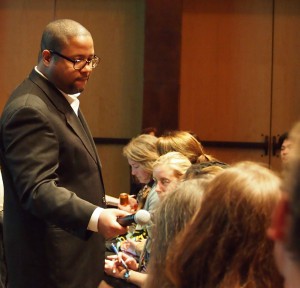
“It’s not an achievement gap,” he said, but many things: An effective leadership gap. An adequate nutrition gap. A family income gap. An access-to-health-care gap. A parental education gap.
In order to work for positive change, Milner said, educators need to look beyond test scores, respond compassionately to students’ neighborhood conditions, and create a space of empathy and understanding in the classroom.
Milner was on campus as part of the Emma Birkmaier Speaker Series sponsored by the Department of Curriculum and Instruction and the College of Education and Human Development (CEHD). An estimated 185 students and educators heard Milner speak at the McNamara Alumni Center on February 5.
Milner is the Helen Faison Endowed Chair of Urban Education and directs the Center for Urban Education at the University of Pittsburgh. His research focuses on urban education, teacher education, African American literature, and the sociology of education. His work primarily analyzes policies and methods that contribute to teacher success in urban settings.
He identified five major issues that can either divide or unite a school community: obsession with test scores, a narrow curriculum that eliminates the arts, socioeconomic status and poverty, school counseling and psychological services, and race.
After his lecture, Milner answered questions about diversity in education and how it affects student achievement.
Increasing racial diversity in teacher education
In addition to the public lecture, Milner led a workshop Thursday morning with area educational professionals about recruiting a more diverse pool of teachers to better fit local districts’ needs.
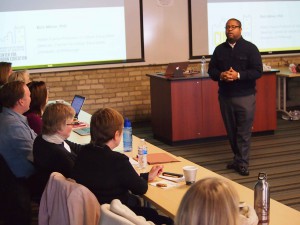
Milner described the history of and esteem for the teaching profession in the African American community. He also presented a theoretical approach for understanding the impact of hurtful interactions in school settings and what can be done to address them.
Shuji Asai, a licensure officer in CEHD’s Office of Teacher Education, attended the workshop and concurred with Milner’s case for teacher recruitment efforts.
“Recruitment efforts need to be tied to the needs of a particular community or schools in order for a partnership to work,” said Asai. “And [we need to] start early, when our future licensure students are in a middle school or high school.”
The Emma Birkmaier Critical Literacy and Urban Education Speaker Series is a program dedicated to bringing leading voices in education to the U to address the experiences of youth in urban schools and the power of literacy education.
In addition to the Department of Curriculum and Instruction, cosponsors of Milner’s visit included CEHD’s Department of Organizational Leadership, Policy, and Development, Department of Postsecondary Teaching and Learning, and associate dean for undergraduate, diversity, and international programs; and the University of Minnesota Campbell Leadership Chair in Education and Human Development.
—Ellen Fee; photos by Claire Rasmussen
International Visitor Leadership Program Visits the STEM Education Center
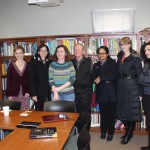
Five emerging multi-regional leaders in the U.S. State Department’s International Visitor Leadership Program will visit the STEM Education Center today, February 11th to discuss issues and opportunities for women in STEM fields with Co-Director, Dr. Karl Smith and Associate Director, Dr. Gillian Roehrig. We welcome the team to the STEM Education Center and hope they have an enjoyable and enlightening experience in Minnesota.
Upcoming Events and What are We reading?
CEHD:
9-Week Online Course: Working With Parents–Considerations For Special Populations
Date: Monday, February 9th
Online course
For 84 clock hours: $580 registration fee
For 2 academic credits: $700
Closing The Relationship Gap: Building The Sociocultural Knowledge And Cultural Intelligence Of Teachers
Date: Wednesday, February 11th
Time: 8:00 AM – 2:30 PM
Location: Continuing Education and Conference Center
9-Week Online Course: Supporting Stressed Young Children Through Relationship-Based Teaching
Date: Monday, February 16th
Online course
For 42 clock hours: $290 registration fee plus required textbook
For 1 academic credit: $350 plus required textbook
University:
Sexual Harassment: Awareness, Prevention, & Response
Date: Monday, February 9th
Time: 9:30 AM – 12:00 PM
Location: UMConnect Twin Cities
Children’s Rights and Corporal Punishment in Israel
Date: Tuesday, February 10th
Time: 12:15 PM – 1:15 PM
Location: 65 Mondale Hall
OED Certificate Workshop 2: Leadership in the Context of Equity & Diversity
Date: Tuesday, February 10th
Time: 1:00 PM – 4:00 PM
Location: President’s Room (332) Coffman Memorial Union
Pride @ Work: Coffee and Bagels
Date: Wednesday, February 11th
Time: 8:30 AM – 9:30 AM
Location: 41 Appleby Hall
Women’s Health Lecture
Date: Wednesday, February 11th
Time: 12:00 PM – 1:00 PM
Location: 2-690 Moos Health Sciences Tower
Of black holes, dark matter, and buried troves: decolonization and the multi-sited archives of Algerian Jewish history
Date: Thursday, February 12th
Time: 12:00 PM – 1:30 PM
Location: 135 Nicholson Hall
Women & Success Discussion Series: Self-Care? Who Has Time For That?
Date: Wednesday, February 18th
Time: 11:45 AM – 1:00 PM
Location: 125 Nolte Center for Continuing Education
Gender, Identity, and Video Games. Demos and Discussion
Date: Friday, February 19th
Time: 3:00 PM – 5:30 PM
Location: Best Buy Theater, Northrop
The Mask You Live In
Date: Monday February 23rd
Time: 6:00 PM – 9:00 PM
Location: Mayo Auditorium Mayo Memorial
Community:
Free Immigration Information Session
Date: Tuesday, February 3rd
When: 6:30-7:30pm
Location: Powderhorn Park Neighborhood Association
Kingfield Empty Bowls
Date: Thursday February 5th
Time: 4:00 PM -8:00 PM
Location: Rev. Dr. Martin Luther King Jr. Park, 4055 Nicollet Ave South
Price: Suggested $20 donation per bowl.
The Secrets of Slave Songs
Date: Sunday, February 8th
Time: 2:00 PM
Location:Minnesota History Center
Price: $20 adults, $15 children ages 6-17; $5 discount for MNHS members.
Reservations: recommended, call 651-259-3015 or register online
Harrison’s Winter Festival “Winter of Love”/Black History Celebration
Date: February 20th-21st
Location: 250 Marquette Ave, Minneapolis, MN 55401
Every Time I Feel the Spirit…A Celebration of African American History
Date: February 28th
Time: 2:00 PM
Location: Minnesota History Center
Price: $20 adults/$15 children 6-17
“Do not read, as children do, to amuse yourself, or like the ambitious, for the purpose of instruction. No, read in order to live.” Gustave Flaubert.
To better understand the lives that live within our college, we are asking CEHD staff and faculty to tell us what they are reading in the areas of equity and diversity. Below is a list of some diversity and equity readings.
The reading from Megan Gunnar:
White Like Me by Tim Wise
The social and psychological consequences of interacting or not interacting with the privilege of being White in America.
The reading from Amy Krentzman:
White Privilege: Unpacking the Invisible Knapsack
I have come to see white privilege as an invisible package of unearned assets which I can count on cashing in each day, but about which I was ‘meant’ to remain oblivious.
The reading from Na’im Madyun:
Whistling Vivaldi: How stereotypes affects us and what we can do
Why do Whites underperform when told their athletic ability is being measured on a task while Blacks are unaffected by the same task and then the reverse happens on the very same task when strategic intelligence is the variable the participants are told is being measured?
Jehangir presents session on social justice at AACU meeting
 Rashné Jehangir, associate professor in the Department of Postsecondary Teaching and Learning presented at the centennial meeting of the Association of American Colleges and Universities (AACU) with her colleagues David Schoem, University of Michigan and Nancy Thomas, Tufts University. The session was titled: “Is There a Place for Social Justice in Higher Education” and focused on community engagement, academic freedom and critical pedagogies that challenge the corporatization of higher education.
Rashné Jehangir, associate professor in the Department of Postsecondary Teaching and Learning presented at the centennial meeting of the Association of American Colleges and Universities (AACU) with her colleagues David Schoem, University of Michigan and Nancy Thomas, Tufts University. The session was titled: “Is There a Place for Social Justice in Higher Education” and focused on community engagement, academic freedom and critical pedagogies that challenge the corporatization of higher education.
Stebleton invited to speak at Gilman Web Symposium
 The U.S. Department of State’s Benjamin A. Gilman International Scholarship Program invited Dr. Michael Stebleton, associate professor in the Department of Postsecondary Teaching and Learning, to share insights during the third webinar of the 2014 – 2015 Gilman Web Symposium Series on Thursday, January 29, 2015.
The U.S. Department of State’s Benjamin A. Gilman International Scholarship Program invited Dr. Michael Stebleton, associate professor in the Department of Postsecondary Teaching and Learning, to share insights during the third webinar of the 2014 – 2015 Gilman Web Symposium Series on Thursday, January 29, 2015.
Moderated by Gilman Program staff member Randi Butler, the webinar “Supporting Non-Traditional Students to Study & Intern Abroad” brought together Stebleton, a researcher on college student development and success, and David Taylor, Director of Global Abroad Programs at Wake Forest University, to discuss this unique and important student demographic. During the webinar, Stebleton and Taylor discussed the benefits studying and interning abroad can bring to non-traditional students and examined ways to include this population in study abroad outreach. Joining the discussion was a Gilman alumnus who is a first-generation college student and studied abroad in Russia while attending a community college.
The Gilman International Scholarship Program is sponsored by the U.S. Department of State, Bureau of Educational and Cultural Affairs (ECA), and administered by the Institute of International Education (IIE).
Commentary: CEHD and TFA — Partnering?
By Na’im Madyun, associate dean for undergraduate, diversity, and international programs
In her book “Multiplication is for White People,” Lisa Delpit writes that the existence of TFA institutionalizes an unfortunate reality. According to Delpit, first year teachers are the least able to produce positive growth in student achievement. In addition, teaching quality increases dramatically in the first three years in the classroom and then begins to level off in the fourth.
Teach for America (TFA) corps members are asked to commit to only two years (although many stay longer) . Teach for America corps members also teach to a 90% African American/Latino population (in part due to their mission and TEACH grant support). Building upon these statements as truths, one can conclude that many Black and Brown students are receiving a less than high quality educational experience from Teach America corps members.
This educational experience is coming at a time when racial tensions are heightened and opportunity gaps are becoming increasingly impactful on society (Some economists argue that closing the opportunity gap by a third would lead to a savings of $50 billion dollars annually) and private dollars are reforming public education (Diane Ravitch argues these reform efforts worsen educational outcomes in high poverty areas ). Many argue that TFA is part of this privatization movement and many veteran teachers suffer as a consequence.
So, why has CEHD decided to partner with TFA?
This past weekend, I attended a funeral in my hometown of Helena, Arkansas, where Teach for America has been present in this poor Mississippi Delta area for over 20 years. My uncle lived to the age of 69. Person after person would, in one form or another, reference my uncle’s many interests and talents.
He was a pastor, an architect, a musician, a radio host, and a teacher (to name but a few). Even though he only recently “retired” back to Helena (his childhood home), he wanted to run for mayor. He knew politics might encourage the making of strange partnering, but he felt he could identify where interests converged to make a difference in the outcomes for all youth. The convergence of interests sometimes can provide opportunities to transform spaces that once seemed immutable.
After the funeral, I sat with a retired teacher that I somehow never met growing up, and decided to get her sense of the state of education in Helena. She spoke on low teacher expectations for student outcomes, poor classroom management and the growth of charter schools. I felt it was appropriate to get a good quote about TFA in Helena and asked a very sharp, well informed question: “So, whaddya think of TFA?” Her response surprised me: “I have no problem with TFA. There are excellent teachers and not so excellent teachers just like in any school. The question is, where is teacher education?”
In Delpit’s book, she shares that she has no interest in proposing the termination of TFA, but has an interest in getting the young, idealistic corps members to commit for longer than 2 years. She also argued for quality, experienced educators who know the local community to be mentors and teacher educators. H. Rich Milner argues that teacher education can be part of disruptive educational movements designed to reduce inequality in systems by converging interests and strategically leveraging that convergence.
Perhaps, that is what CEHD is trying to do.
The number of TFA corps members who stay beyond the two years has increased, but maybe interests can be strategically converged to increase TFA member presence in the communities beyond the two years. Julie Malinowski, a TFA member, met her husband (a fellow TFA member from Wisconsin) in Helena and they decided to lay their roots there. I reached out to her in Helena while there and she shared this:
“TFA has brought an influx of well-educated young professionals to Helena and the greater Delta region…. I know of a number of local folks who are talking about moving back to be a part of this excitement, to be a part of making Helena a better place to live.”
TFA has functioned to improve the lives of some young Black males, perhaps interests can be strategically converged where more Black male lives can be impacted.
I reached out to my former TFA teacher, Mr. Fee. My younger brother passed away of leukemia during my senior year. After the funeral, Mr. Fee, a Stanford graduate with a degree in English Literature, asked if he could write a college letter of recommendation for me. I agreed. He proceeded to interview many of my former teachers and constructed a beautiful composite recommendation full of quotes, facts and reflections. I wasn’t sure what he saw in me, but I began to see myself a little differently afterwards. Mr. Fee has since moved back to California and started an educational technology company. He shared with me the following words:
“Teach For America did not just grant me a career direction, it also exposed me to a part of the country where I might otherwise not have spent time, and thus introduced me to lifelong friends who are unlike people I’ve made at other times in my career… I learned firsthand about working and living with people from different backgrounds, different beliefs, and about periods in our nation’s history that I might otherwise have ignored.”
If CEHD is sincere about the importance of Teacher Education in addressing educational inequality, perhaps it has an obligation to become an unlikely partner with TFA.
EngrTEAMS Fellows Present at MnCOSE
EngrTEAMS Teacher Fellows, Marta Stoeckel and Angela Peterson will be presenting their work on the EngrTEAMS project at the Minnesota Science Teachers Association Conference on Science Education conference on February 20th, 2015. Check out their presentation description and more information about MnCOSE here!
